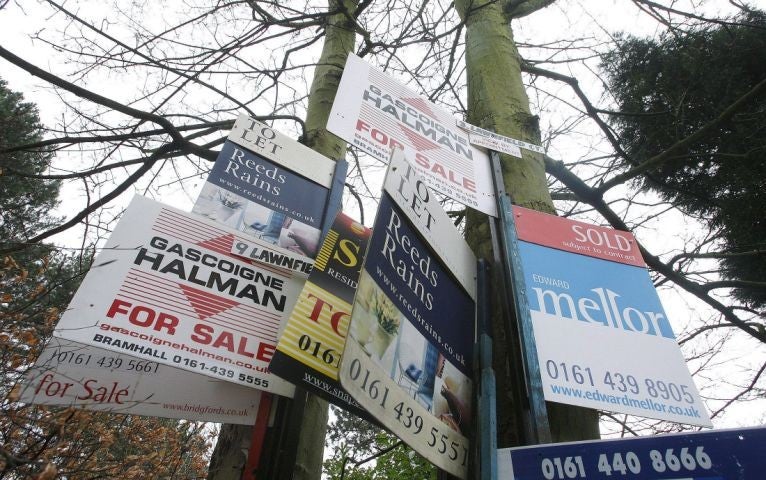What happens after the mortgage payment holiday deadline on 31 October?
Borrowers can still request help after 31 October if they find themselves in difficulty, but lenders may not be quite so accommodating as they have been so far during the pandemic

Your support helps us to tell the story
From reproductive rights to climate change to Big Tech, The Independent is on the ground when the story is developing. Whether it's investigating the financials of Elon Musk's pro-Trump PAC or producing our latest documentary, 'The A Word', which shines a light on the American women fighting for reproductive rights, we know how important it is to parse out the facts from the messaging.
At such a critical moment in US history, we need reporters on the ground. Your donation allows us to keep sending journalists to speak to both sides of the story.
The Independent is trusted by Americans across the entire political spectrum. And unlike many other quality news outlets, we choose not to lock Americans out of our reporting and analysis with paywalls. We believe quality journalism should be available to everyone, paid for by those who can afford it.
Your support makes all the difference.With millions of people’s finances impacted by the coronavirus pandemic, payment holidays have been a lifeline, offering the chance to cut outgoings during hard times.
On 31 October, however, an agreement between the City watchdog and financial services firms to offer a break from payments to anyone who asks for one comes to an end.
That means anyone who has already taken a payment holiday and wants to extend it, or who hasn't yet taken one but thinks they need to, should request it by the deadline.
It will typically be the last three months from the date it is agreed.
From 1 November, anyone can still request to take a break from payments on loans, credit cards, mortgages and a host of other financial products, but the approach lenders take will be different.
More importantly, so will the impact on borrowers.
A payment holiday that begins prior to the 31 October will not be marked on your credit file, although lenders can choose to look at other data for gaps in payments.
Most lenders have not scored people harshly for taking a payment holiday since the pandemic began as long as they have resumed making payments.
From 1 November, borrowers who ask lenders for help with their finances will likely receive less support than is currently available.
Banks, building societies, credit card firms and others have agreed to offer “tailored support”, which could mean payment holidays, reduced payments, lower interest or a different product. It is up to the lender to make an offer and come to an agreement with you.
Any help they provide after 1 November will be marked on your credit file, meaning it is likely to have a more significant impact on future loan, credit card or mortgage applications.
However, this will be much less significant than if your bills become too much and you are unable to pay resulting in default. If you think this might happen, a repayment holiday may be a better option, even if you do not end up needing it.
Mortgages
Lenders should contact any customers having difficulty paying to offer help. They must also identify those who are vulnerable and help them obtain independent debt advice. Payment holidays or longer term repayment plans can be offered to people who need it. Because your mortgage is still accruing interest during the payment holiday, your monthly instalments increase once it is over. Repossession hearings start again from 1 November but bailiffs will not be carrying out evictions for people living under local restrictions.
Loans
Lenders have been told to be flexible and identify any struggling or vulnerable customers. They have an obligation to ensure that customers’ debts do not become unmanageable. If debts do grow too fast, lenders should reduce interest, fees and charges so that they are sustainable again.
Overdrafts
The Financial Conduct Authority instructed banks to give customers the first £500 of their overdraft interest free. This is due to expire but, as with repayment holidays, you can request for it to be extended if you are in financial difficulty. Contact your bank before 31 October.
Rent
Tenants struggling to pay their rent should speak to their landlord to agree a repayment plan. Evictions are not taking place in areas under tier 2 or 3 restrictions, or in Wales while it is in lockdown. Evictions are also suspended nationwide over Christmas, from 11 December to 11 January.


Join our commenting forum
Join thought-provoking conversations, follow other Independent readers and see their replies
Comments